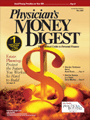Publication
Article
Physician's Money Digest
Improve Your Car's Fuel Efficiency
Author(s):
With gasoline prices skyrocketingto record highs and littleto no relief on the horizon,even the most successful physicians arelooking for ways to stretch their fuel budget.Whether you drive an environmentallyfriendly hybrid car or a gas-guzzlingSUV, saving money on gas is always a positivething. On their Web site www.fueleconomy.gov, the United States Departmentof Energy lists several smart stepsyou can take to conserve your fuel consumption,including the following:
•Drive efficiently. One of the biggestdrains on gasoline is aggressive driving(eg, speeding, rapid acceleration, and frequentbraking). According to the Website, by driving more safely and obeyingthe speed limit you can lower your gasmileage by as much as 33% on the highwayand 5% on city streets. After 60 mph,your fuel economy goes down drastically,and for every 5 mph you drive over 60,you essentially pay $0.10 more per gallonfor gas. Using cruise control will maintainyour speed and help you save gas.
Excessive idling also burns gas unnecessarily,especially in cars with largerengines. If your car is going to remainidle for a long period of time (eg, yourpassenger is making a quick run into astore), be sure to turn off your engine.Also, remember to avoid excessivelyusing your car's air conditioning system,which eats up more fuel.
•Keep your car in shape. Accordingto the Web site, having a tune-up performedon a car improves its gas mileageby an average of 4%. One fairly simplerepair, replacing a faulty oxygen sensor,can raise your gas mileage by as much as40%, saving you up to $0.60 per gallon.On the other hand, clogged air filter canreduce gas mileage by almost 10%.
Although you may not think keepingyour tires properly inflated helps thecause, it does. Maintaining appropriatepressure in all four tires can increase yourgas mileage by 3%; for every 1 poundper-square-inch drop in pressure, gasmileage drops about 0.4%.
Note:
Using the wrong grade of motor oilcan also reduce your mileage. As the Website points out, if you're using 10W-30motor oil when your engine requires 5W-30, you lower your gas mileage by up to2%. Use oil that says "EnergyConserving"in the performance symbolon the bottle; this type of oil contains frictionreducing additives.
•Properly plan trips. Carpooling mayseem like a bit of a hassle, but it can saveyou and your carpool mates a large chunkof money each week. If you have staff inyour practice that all live within a reasonabledistance of each other, consider startinga carpool system. Not only will it saveyou big bucks on gasoline, but it will alsohelp reduce wear and tear on your vehicle.Another option, if possible, is to usepublic transportation, especially if there isa bus or train station near your home andyour practice.
When you plan on traveling longerdistances, avoid placing luggage on topof your car in a roof rack. Although theextra storage diminishes the need todrive a gas-guzzling SUV, the weightand drag can reduce your gas mileageby up to 5%.
